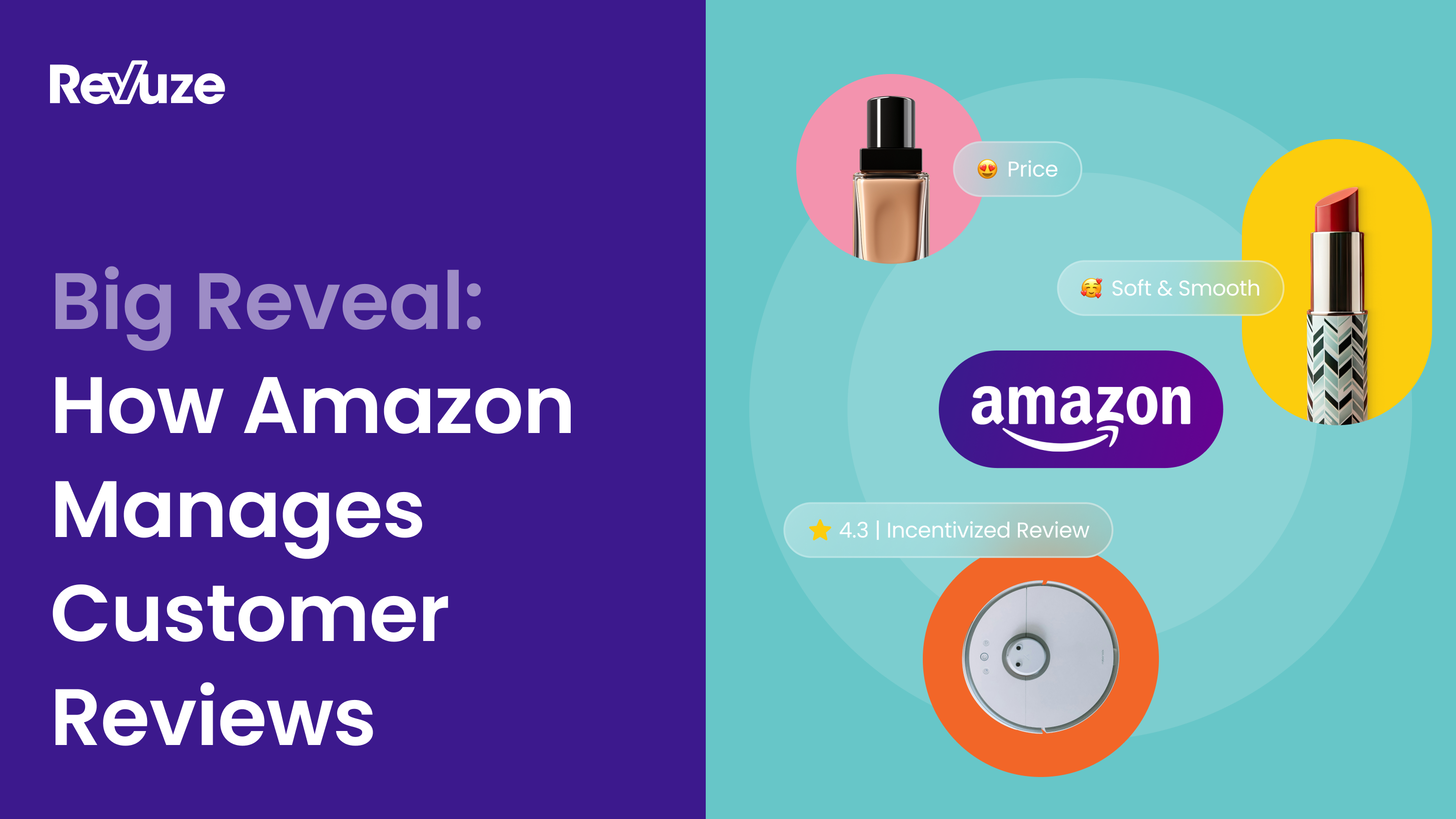
Nowadays, online consumers check reviews and social media posts before purchasing a product or service. Amazon customers are no different. Monitoring your product reviews will make sure you’ll stay ahead of the game, and the competition.
But how do you effectively and efficiently monitor and analyze Amazon reviews? And why should you? This blog post will answer all of your Amazon Review analysis questions.
Why Is Amazon Reviews Analysis Important ?
According to the New York Times, over 80 percent of Americans read online reviews before making new purchases, considering them to be informative and accurate. The report also stated that negative reviews had a particularly dramatic influence on people’s buying behaviors.
So, knowing what customers are saying about your product, be it positive or negative, is vital. Monitoring and understanding consumer reviews gives you priceless insight into customer experience and attitudes, and enables you to stay in tuned with market shifts and changes.
Customer reviews on Amazon provide businesses a lot of information – what they liked or didn’t like about the product, what they are missing in the current market, and even the level of interest in future products. This information will also enable you to identify customer pain points and deal with them before launching a new product.
Who Writes Amazon Reviews?
After learning how valuable those reviews are, you might be wondering who is writing them. Using both Text Analysis and Sentiment Analysis, the reviews are scanned and classified as either “positive”, “negative” or “neutral”. This classification helps categorize the writers into one of the following groups:
- Customers who love the product
- Customers who hate the product
- Customers loyal to the brand
- Customers who want to pay it forward (they feel that since they read reviews, it’s only fair that they write one)
However, there is another category – Fake reviews.
The problem with fake reviews
Despite its best efforts, Amazon has a major and very persistent fake reviews problem. False consumer feedback not only misleads customers and hurts brand’s reputation, but it also very detrimental to CX analysis and market research.
When going through and reading Amazon reviews there are a few key points that’ll help identify fake reviews –
Tone and Language – Many fake reviews tend to sound unnatural, planned, like an ad or an infomercial for the product. Also, look out for the product’s full name, if it is mentioned repeatedly it is probably an attempt to enhance SEO ranking.
Keywords – Companies who pay people to write reviews often provide them with specific keywords to include in the review. identical phrases or keywords in multiple reviews are a tell tale sign of fake, paid-for reviews.
Details – Or lack thereof, to be exact. Short and concise reviews that don’t provide much explanation for the high rating, are often fake.
But don’t let fake reviews deter you from monitoring and analyzing your product’s Amazon reviews, and using that information to encourage brand growth and innovation. Amazon reviews analysis can help you improve your brand in a multitude of ways – the data collected can help create or upgrade products and improve content and marketing strategies.
How do you track amazon reviews?
There are two ways to track Amazon customer reviews –
First, manual tracking. This type of tracking requires locating the Amazon product URL, loading it, check for new reviews, do a deep dive into the product’s “Customer Reviews” page, look at the newest ratings, analyze the information and decide on a course of action (via product design, marketing, content writing ect.), and repeat.
If we are talking about a small business with maybe a handful of products, this kind of process might be achievable. But, large businesses with hundreds of products cannot rely on manual tracking. It would simply be inefficient and a waste of resources.
Some businesses try and solve this issue by hiring interns or freelancers to do the manual tracking. Paying review trackers can sum up to hundreds of dollars a month, amounts that can be directed to improving marketing, market research, or product innovation.
So, using automated Amazon review tracker can make a world of difference.
Automated Amazon Review Tracker will scan your chosen product URL, detect selected keywords, identify new reviews, and send you an alert. It is the fastest and most efficient way for you to gain current, granular customer feedback data for analysis. Amazon Review Trackers save you time and resources, allowing you to focus on analyzing the valuable information gathered.
Amazon Review Analysis gives you an amazing opportunity to discover customer pain points, monitor your competition, and use that information to make your product better. Amazon review analysis helps you process the data quickly and efficiently, so you gain priceless insight into what your customers are thinking, what they need, and what they want. So why not invest in a great one?
How can Revuze help with Amazon review analysis
Revuze’s Amazon review analysis tool uses Artificial Intelligence that learns and adapts to the chosen market, recognizing fake reviews based on patterns and sentiments. This allows our innovative low touch AI technology to identify and dismiss fake reviews, providing accurate and relevant data for analysis.
Revuze’s Self learning algorithms scan and analyze the data, identifying customer sentiment and flagging pain points. The end result is highly granular Amazon review analysis for data-driven decision making that will elevate your brand to a whole new level.
 All
Articles
All
Articles Email
Analytics
Email
Analytics








 Agencies
Insights
Agencies
Insights